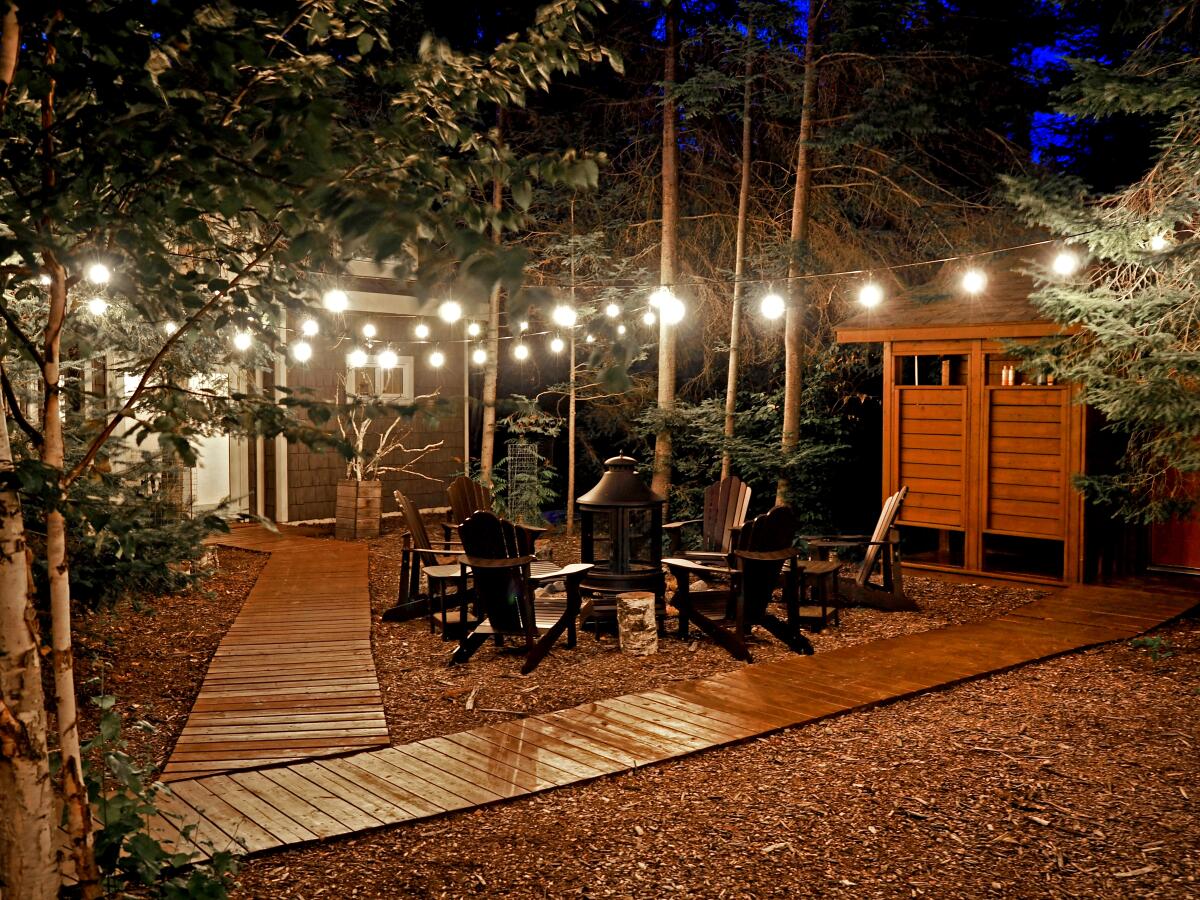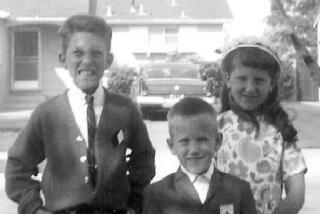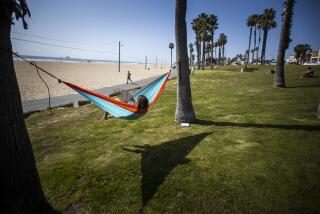Op-Ed: Same time, next year. New cabin? Why I long for a getaway my family can call its own

Every September, my family and I disappear from the same sleepy town where we have rented a summer cabin for the last five years. Before then, the village green is full of people like us — interlopers who come to inhabit other people’s summer homes. Then, one fall morning, like a flock of migrating birds, we’ve all vanished, and the community reverts back to the ones who are not just passing through, the people who belong.
Here the driveway signs are a kitschy part of this town’s lake life culture. They say endearing things like “Hamilton’s Haven” or “Potter’s Paradise.” But for me, they’ve always felt personal, a billboard gloating: Here is a happy family, an unexpected reminder of another time, another family in summer, a life I left behind.
I rarely try to explain my childhood to my sons. My oldest sister, ravaged by a brain tumor, was wheelchair-dependent, half-deaf, legally blind and prone to fits of rage. My brother was tormented by the mental illness that burnt his life to the ground. Another sister and I coexisted in the middle of this chaos, and my parents hauled all of us through it. They were determined that we would live something close to a normal family life and, somehow, they created that illusion.
We did not rent cabins in the summer. Instead, my mother spent endless late nights preparing for our monthlong vacation — packing a mountain of clothing and supplies for the six of us, scrubbing and filling the old 1974 Holiday Rambler trailer my parents bought secondhand. As we pulled out of the driveway each year it seemed like we were just another family setting off on vacation — even if my sister once tried to get out of the moving car on the highway and my brother had a colossal screaming fit in a national park.
Those years are studded with many remarkably happy memories for me. I remember picking low-to-the-ground, sapphire-like blueberries on windy hills near Lake Superior outside of Duluth, Minn., and eating vinegar-soaked fries off checkerboard paper in parking lots, chased by heaps of half-melted Little Debbie Snack Cakes. I remember collecting driftwood on pristine beaches, writing our names in the soft crystalline sand, we were here dissolving into the slow, gelatinous waves. They are such typical postcard summer memories, and for a few weeks out of every year, they let me pretend that we were the same as any other family.
But we weren’t, of course. I knew this when I saw those other families crowded around picnic tables or sitting by the fire, laughing. No wheelchairs. No screaming fits. No worrying about ramps or doorways or hiking paths that went straight up hills. I watched them with a feeling I couldn’t name. It lacked the hard edge of envy; it was a hollowed-out, aching husk of an emotion as hot as a campfire.
I can name that feeling now: longing. I longed for us to be “normal,” for life to be easier for my parents and siblings, for people to stop staring at us wherever we went. And yet, I was a starer too. I gawked compulsively inside other people’s motorhomes and trailers, looking for what I thought was inside them. I guess I assumed it was happiness.
Years later, as a doctor, I’ve come to know how much people suffer in private; how many closed curtains hide a parent’s drinking, how much mental illness steals from other brothers and sisters, how many unspeakable losses and childhood secrets my patients bring with them into a room.
If I longed to ‘write my book,’ the first step couldn’t be ‘write my book.’ It had to be, simply, to write. Every day.
My own children are fortunate. I’m lucky enough to be able to give them little things I never had and always wanted, and big things that are priceless. They have not had to worry about each other’s health. They have never known the weight of longing up against their childhoods. I hope they never will.
A friend who lives in the little town has been telling us we should buy a place. Just before Labor Day, he sent me a picture of a tiny cabin that had just gone up for sale, tucked into the woods, hidden by a crowd of pine trees beginning to shed their needles. This would be so perfect for your family, he said.
I felt that old rush of longing. The next day, I showed the picture to my husband. I told him I didn’t want to be an interloper next summer. I wanted to take our kids to our cabin and pick sapphire-like berries on the sand cliffs. I wanted get takeout from the town’s only restaurant and eat fries off checkerboard paper from our picnic table. I wanted our name on a sign. I didn’t want us to have to disappear when the leaves start changing color. I wanted to belong.
Yet it is more than a cabin. It is a place to write the names of the people I love where nothing can wash them away, to convert we were here to we are here. For both my families — the one I have now, and the one I will never leave behind.
Jillian Horton is a writer and physician. She is the author of “We Are All Perfectly Fine: A Memoir of Love, Medicine and Healing.”
More to Read
A cure for the common opinion
Get thought-provoking perspectives with our weekly newsletter.
You may occasionally receive promotional content from the Los Angeles Times.











